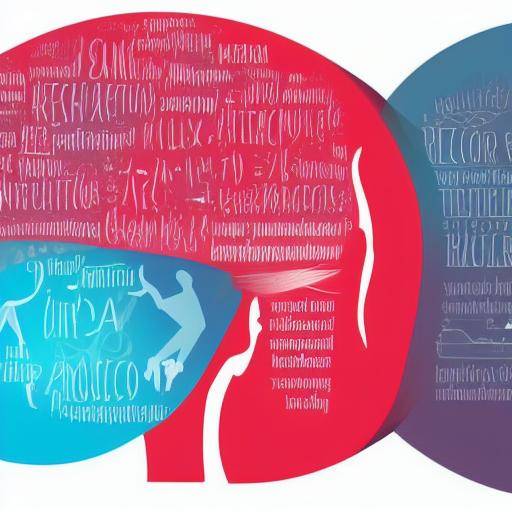
Decision-making is a fundamental aspect in personal and professional life. The ability to make successful decisions can make the difference between success and failure. One of the key factors that can significantly influence the quality of our decisions is emotional intelligence. In this article, we will explore how emotional intelligence can improve decision-making, its impact on mental well-being and its relevance in different aspects of life. Join us on this journey towards self-knowledge and personal growth.
Introduction
Decision-making is a process that we all face in our day to day, from simple decisions like what clothes to wear, to complex decisions that can affect the course of our lives. Emotional intelligence, on the other hand, refers to the ability to recognize, understand and manage our own emotions, as well as those of others. When we combine decision-making with emotional intelligence, we get a powerful formula that can positively influence our choices and our mental well-being. In the next sections, we will explore in detail how this combination can impact different aspects of our lives.
History and Background
Origins of Decision-making and Emotional Intelligence
Decision-making is a process that has been studied and analyzed throughout history. From the philosophical theories of ancient Greece to modern approaches in psychology and economy, human beings have always sought to understand how we make decisions and what factors influence them. On the other hand, emotional intelligence as a formal concept is relatively recent, with the pioneering work of psychologists like Daniel Goleman, who popularized the term and its importance in the 1990s.
Evolution of Decision-making and Emotional Intelligence
Over the years, the study of decision-making has evolved considerably, from purely rational approaches to models that integrate emotional and social aspects. Similarly, emotional intelligence has gained recognition as an essential skill in the personal and professional sphere. Both fields have converged in the understanding that our emotions play a crucial role in our decisions, and that ignoring this aspect can lead to unintended consequences.
Relevant Daughters in Decision-making and Emotional Intelligence
Some relevant milestones in the study of decision-making include the development of the theory of rationality limited by Herbert Simon and the popularization of the behavioral economy, which challenges the assumptions of classical economic theory. As for emotional intelligence, the publication of Daniel Goleman's book "Emotional Intelligence" in 1995 marked a key moment in spreading this concept. These milestones have contributed to a more holistic understanding of how we make decisions and how our emotions influence this process.
Analysis in Deep
Benefits of Emotional Intelligence in Decision-making
Emotional intelligence can bring a number of significant benefits to decision-making. By being aware and understanding our emotions, we can make decisions more aligned with our long-term values and objectives. Furthermore, the ability to regulate our emotions can help us avoid impulsive or fear-based decisions, which often leads to sub-optimal results.
Challenges in the Integration of Emotional Intelligence in Decision-making
Despite the benefits, integrating emotional intelligence into decision-making is not without challenges. In a context in which rationality has traditionally been overrated, the inclusion of emotional aspects can be perceived as a weakness. In addition, identifying and managing our emotions effectively requires a high degree of self-consciousness and self-control, skills that not all possess to the same extent.
Current Trends in the Application of Emotional Intelligence in Decision-making
At present, there is a growing trend towards integrating emotional intelligence into decision-making settings. This trend is seen both in the business sphere, where emotionally intelligent leadership is increasingly valued, and in the educational sphere, where the importance of developing emotional skills from early ages is recognized. Continuous research in this field is shedding light on how we can improve our decisions through the development of emotional intelligence.
Comprehensive review
Emotional Intelligence Practices in Decision-making
Emotional intelligence finds applications in a wide range of decision-making contexts, from individual decisions to decisions in teams and organizations. In the personal domain, it may influence decisions related to health, interpersonal relationships, time management and personal goals. At the organizational level, emotional intelligence can improve strategic decision-making, conflict resolution and change management.
Best Practices and Case Studies in the Integration of Emotional Intelligence in Decision-making
Several case studies have highlighted the positive impact of emotional intelligence on decision-making. For example, companies that prioritize the development of emotional intelligence among their leaders tend to have a better working climate, increased employee retention and stronger financial performance. Similarly, individuals who have worked to improve their emotional intelligence report greater satisfaction and well-being in their lives, as well as a more aligned decision-making with their values and objectives.
Comparative Analysis of Approaches in Decision-making
By comparing purely rational approaches to approaches that integrate emotional intelligence, it is observed that the inclusion of emotions can enrich the decision-making process. While an exclusively rational approach can overlook key aspects that influence our decisions, the consideration of our emotions allows us to have a more complete and balanced vision, which can result in more sensible and satisfying long-term decisions.
Practical Tips and Accessible Recommendations
To improve decision-making through emotional intelligence, it is useful to practice self-consciousness, that is, to be in tune with our own emotions and thinking patterns. It is also crucial to develop the ability to regulate our emotions, to prevent them from negatively affecting our decisions. In addition, fostering social empathy and abilities can contribute to making decisions more aligned with the needs and emotions of others.
Conclusions and FAQs
Conclusions
Emotional intelligence can be a powerful ally in the decision-making process. By recognizing and managing our emotions, we can improve the quality of our decisions and promote greater mental well-being. The integration of emotional intelligence in different spheres of life, from personal to professional, can lead to more satisfying and rewarding results.
Frequently asked questions
How does emotional intelligence influence decision-making?
Emotional intelligence influences decision-making by providing us with the ability to recognize and understand our emotions, and effectively manage them. This allows us to make more conscious and aligned decisions with our values and objectives.
What are some signs of emotionally intelligent decision-making?
An emotionally intelligent decision-making is characterized by the ability to consider both logic and intuition, adaptation to difficulties, self-consciousness to recognize their own emotions and their impact on decisions, and empathy towards others involved in the decision-making process.
How can I develop my emotional intelligence to improve my decision-making?
To develop emotional intelligence, it is advisable to practice self-consciousness through reflection and identification of emotions. Also, emotional regulation can be improved through stress management techniques and anxiety. Social empathy and abilities are strengthened by placing themselves in the place of others and practicing active listening.
In what areas of life can emotional intelligence have a significant impact on decision-making?
Emotional intelligence has a significant impact on different spheres of life, including interpersonal relationships, time management, conflict resolution, financial decisions, and professional choices, among others.
What role do emotions play in decision-making?
Emotions have a key role in decision-making, as they influence our perceptions, judgments and choices. Recognizing and understanding emotions allows us to make more conscious and aligned decisions with our long-term interests.
How can I apply emotional intelligence in a working environment?
The application of emotional intelligence in the working environment involves the development of emotionally intelligent leadership skills, effective conflict management and the promotion of a healthy working environment. It also involves making decisions with regard to the needs and emotions of the collaborators.
What is the impact of emotional intelligence on mental well-being?
Emotional intelligence is closely related to mental well-being, as it promotes greater self-consciousness, effective stress management and more positive communication, which can contribute to greater personal and labor satisfaction.
In short, emotional intelligence can be a powerful tool to improve decision-making in all aspects of life. By developing this skill, we can not only make more successful decisions, but also promote greater mental well-being in our day to day. Incorporating emotional intelligence into the decision-making process can be a significant step towards personal and professional growth, and a means of achieving a more full and fulfilling life.






















































